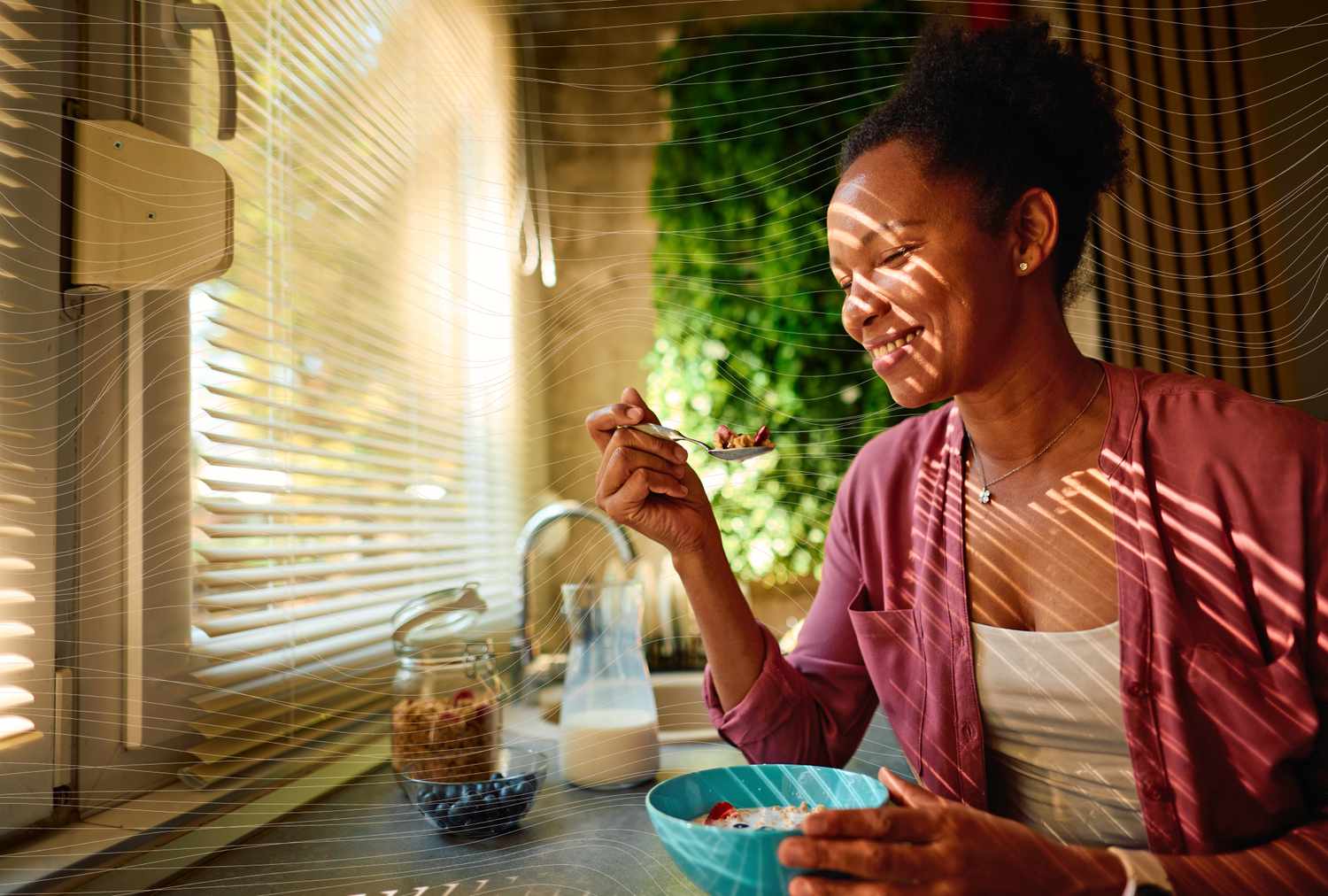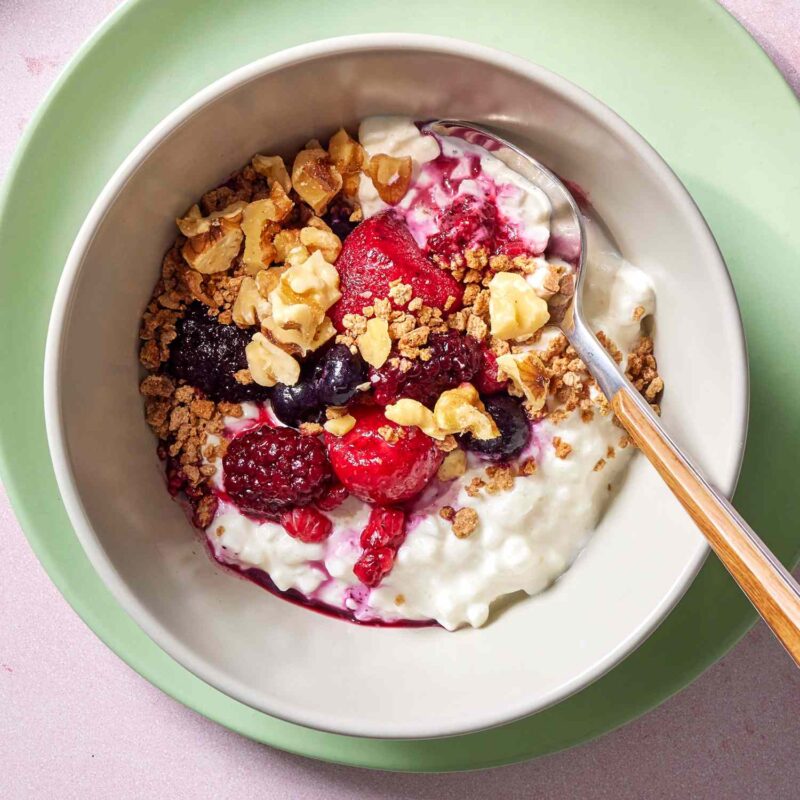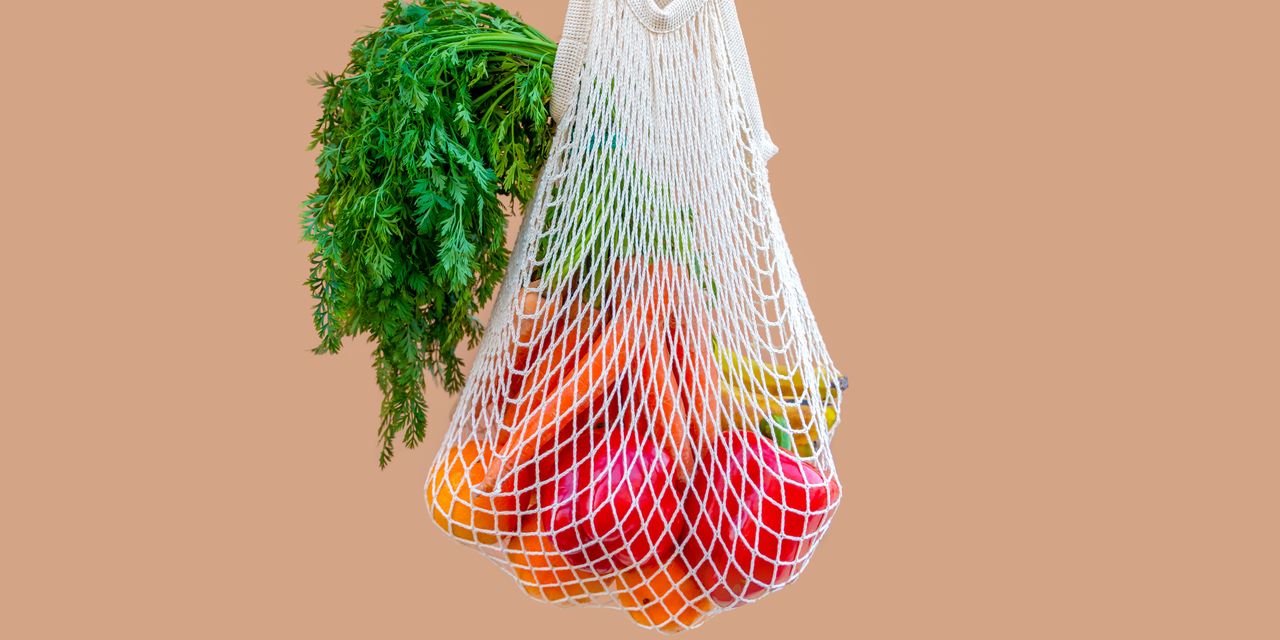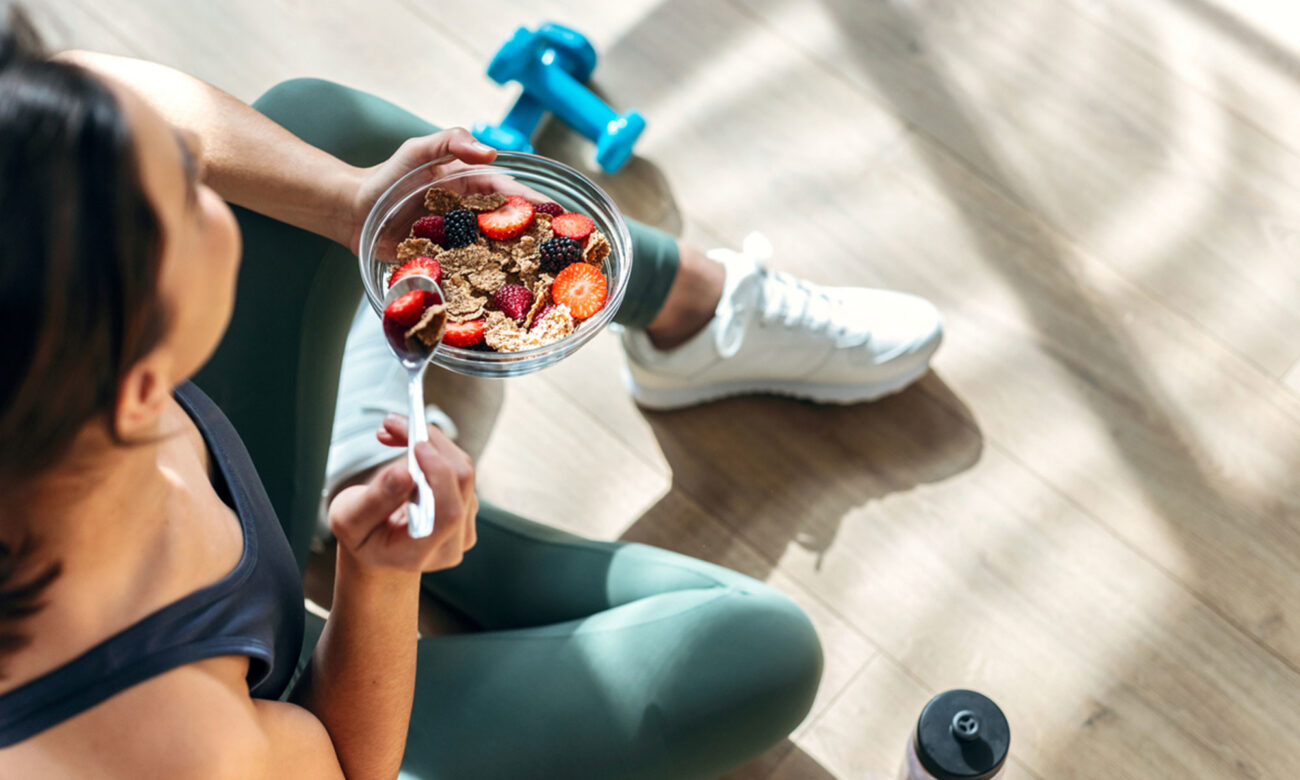Blog
The Best Time to Eat Oats for Maximum Benefits

- Eating oats in the morning may support blood sugar and keep you full.
- Oats are rich in fiber, complex carbs and nutrients that support heart health.
- Pair oats with protein and fruit for a balanced, satisfying start to your day.
Oats are a classic breakfast option for good reason—they’re budget-friendly, easy to prepare and packed with fiber, vitamins and minerals. Whether you enjoy them warm, chilled overnight or baked into muffins, oats are one of the most versatile whole grains around.
But beyond being cost-effective and convenient, oats also offer several health benefits—from supporting heart health to balancing blood sugar. Interestingly, when you eat them may boost their health benefits, according to registered dietitians. “Oats deliver benefits any time, but having them at breakfast maximizes fullness, stabilizes appetite and helps set the tone for a healthier day,” says Stacy Lofton, M.S., RD, a registered dietitian.
In this article, we break down why morning is a great time to eat oats, their benefits and tips on how to prepare them.
Why Morning is the Best Time to Eat Oats
Oats are a nutritious choice any time of day, but starting your morning with them can offer added benefits. Here’s why breakfast might be the best time to enjoy them.
Helps Support Balanced Blood Sugar
Starting your day with oats can help keep blood sugar levels steady—especially when combined with protein and healthy fats. “Consuming oats in the morning can help prevent blood sugar spikes and crashes that may occur with other more refined breakfast options,” says Juliana Crimi, M.H.Sc., RD, a registered dietitian. Studies show that eating oats lowers post-prandial (after meal) glucose levels in both people with and without diabetes. They also help lower fasting glucose over time in people who have diabetes.
Promotes Satiety
Oats are naturally rich in fiber—especially a type called beta-glucan—which slows digestion and helps keep you full longer. “Oats provide a good source of soluble fiber, which increases satiety and can contribute to weight management,” explains Crimi.
Research suggests that the unique combination of starch and fiber in oats releases energy slowly, helping to prolong fullness and curb appetite between meals. “Your body responds more strongly to filling foods early in the day. The same bowl of oats eaten in the morning is likely to keep you fuller for longer than if you eat it later,” Lofton adds.
Fuels Muscles for Movement
Starting your day with oats can help provide steady energy for both physical activity and mental focus. “Oats provide complex carbohydrates that give you long-lasting energy for your morning routine or workout, as well as some plant-based protein to support muscle maintenance,” says Lofton.
Unlike quick-digesting refined grains, the fiber and slow-digesting starches in oats help sustain your energy levels without sudden crashes—making them a great option whether you’re heading into a workout or a long work day.
To boost performance and results, Lofton recommends pairing oats with a protein source like Greek yogurt, nut butter or eggs. You can also increase the protein content of your oatmeal by cooking it with dairy or soy milk or by adding a scoop of protein powder. “Adding a protein-rich food supports muscle recovery, especially after exercise,” she says. This simple addition can help you feel fuller longer and may reduce the urge to snack on less nutritious foods later on.
Supports Heart Health
Eating oats earlier in the day may maximize their heart-healthy benefits. “Metabolic hormones are naturally more active earlier in the day, making morning an ideal time to leverage the benefits of fiber and whole grains,” says Lofton. “Beta-glucan fiber may support cardiovascular health and help reduce the risk of chronic conditions,” she adds.
The beta glucan found in oats has been shown to help lower LDL (often called “bad”) cholesterol levels by binding to cholesterol in the digestive tract and helping remove it from the body. Research has linked regular oat consumption with reduced total cholesterol and improved blood lipid profiles—two key markers of heart health. Paired with other healthy choices—like choosing unsweetened toppings, fruits and nuts—oats can be a simple yet powerful way to support your heart health every day.
Tips for Enjoying Oats
“How you prepare and pair your oats often matters more than the clock when it comes to maximizing their benefits,” says Lofton. Here are some tips to get the most benefits from oats, no matter when you eat them.
- Add Protein. “Pairing oats with a protein source can help make your meal more balanced and satisfying,” says Crimi. This combo helps support muscle health and keeps you full longer. Foods like yogurt, nut butter, seeds and eggs can add protein to your morning oatmeal.
- Top with Fruit. Fresh or frozen fruit adds natural sweetness along with fiber, vitamins and antioxidants. Loften suggests adding berries, bananas or apples to your oats to boost its nutritional value.
- Use Milk or Milk Alternatives. Cooking oats in milk or a fortified plant-based alternative gives them a creamy texture and an extra dose of nutrients. According to Crimi, “Using soy or dairy milk can increase the protein content of your oats while also providing calcium and vitamin D.”
- Sneak it in. Not a fan of oatmeal? Try sneaking oats into blended foods like smoothies or baked goods. Adding a spoonful of dry oats into a smoothie boosts creaminess and fiber—you won’t even notice that it’s in there.
Our Expert Take
Oats are a versatile and affordable whole grain that offer health benefits no matter when you eat them—but having them in the morning may give you a head start on meeting your nutrition goals for the day. Experts agree that oats provide long-lasting energy that supports stable blood sugar, appetite regulation and healthy cholesterol, making them a great food to include in your morning routine. While eating oats in the morning can have added benefits, “the real power of oats comes from consistency; making them part of your routine matters more than watching the clock,” says Lofton.











